Forbidden Games (1952)
“What’s a cemetery?”
|
Synopsis: |
|
Genres, Themes, Actors, and Directors:
Response to Peary’s Review: — is nearly beyond belief, as are the incredibly distressing, albeit realistic, final moments of the storyline (which, by the way, are “spoiled” in Peary’s review). Writer-director Rene Clement films Forbidden Games from a child’s perspective, and is primarily concerned with exploring how children cope with the chaos of wartime. While Peary expresses ambivalence about the meaning of the children’s obsession with burials (“I’ve never been able to figure out the significance of the children’s death-burial-prayer fascination”), to me the symbolism is crystal clear: in a world where unspeakable death surrounds them, children must find some way to regain a sense of personal agency. Peary also points out the disparity between the hypocritical “Christian” adults in this film — who are “habitually at odds with one another” — and the innocent simplicity of Paulette and Michel’s friendship. Rarely has a film so effectively portrayed the disparities between the fantasy-laden survival of children, and the brutish animosity of adults. Redeeming Qualities and Moments:
Must See? Categories
(Listed in 1001 Movies You Must See Before You Die) Links: |
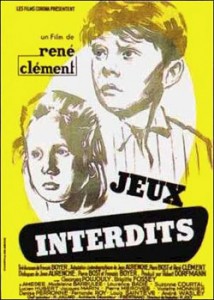
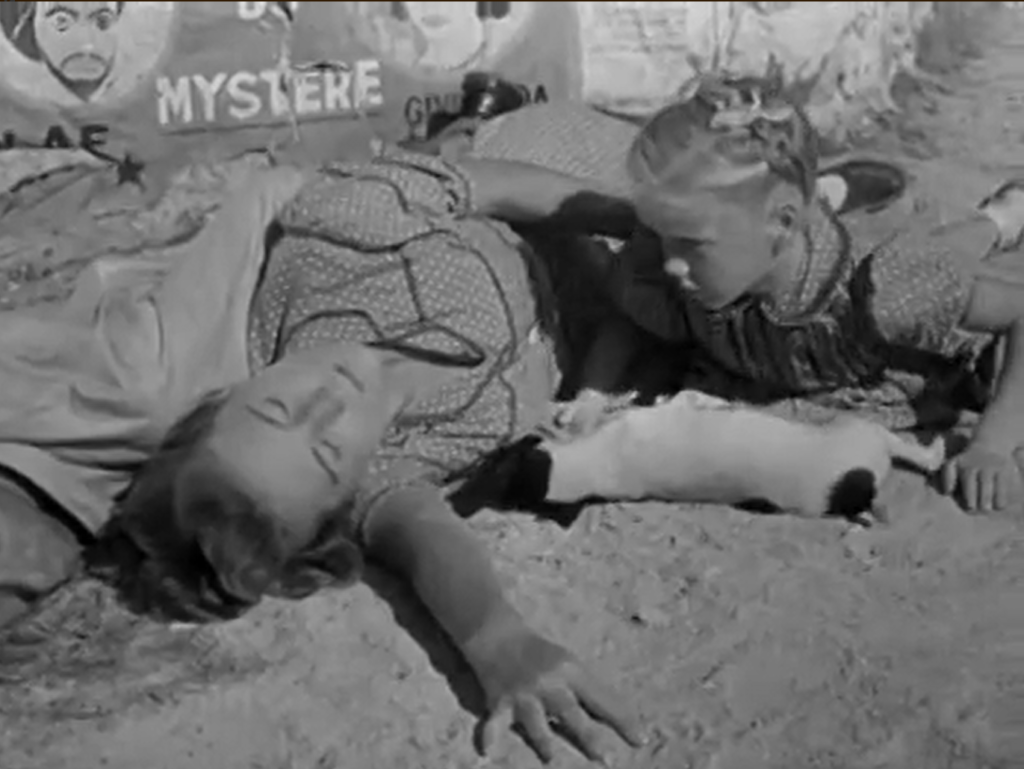
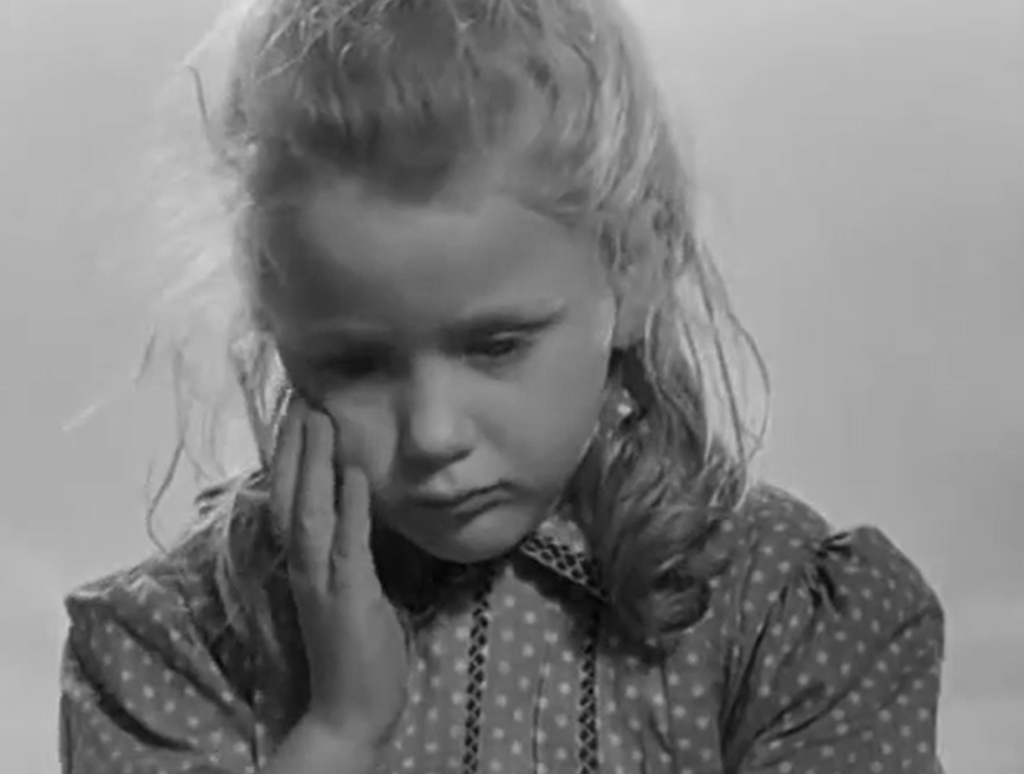
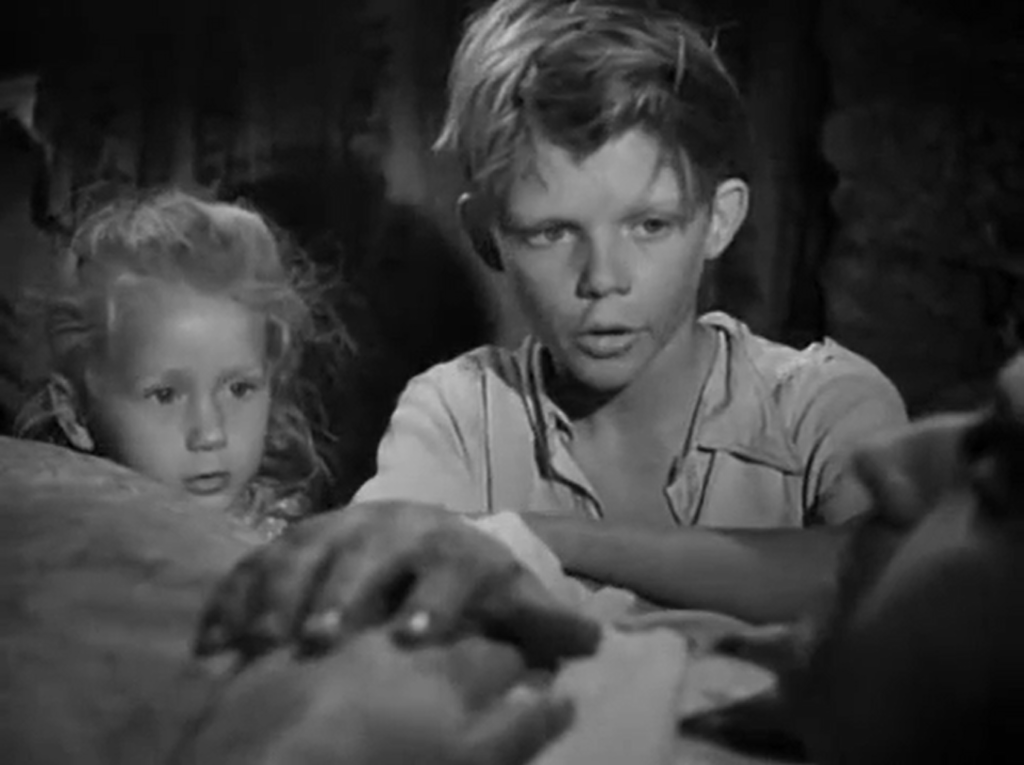

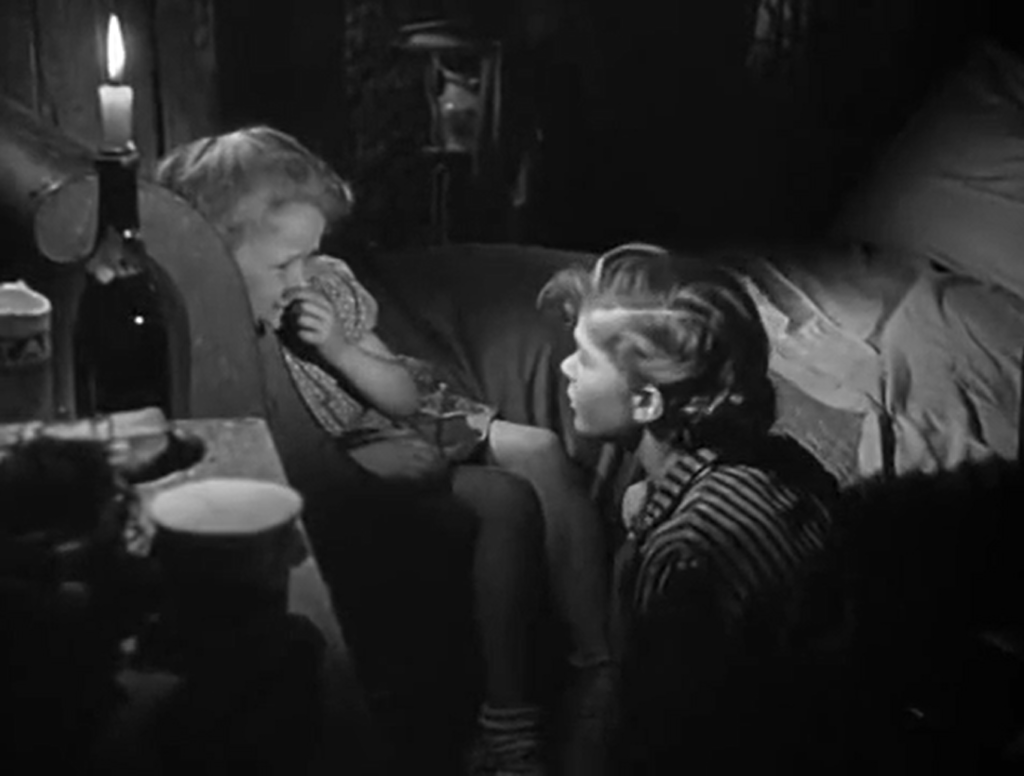
One thought on “Forbidden Games (1952)”
Of course, a must. In total agreement with what’s written.
Hadn’t seen this in a long time – am not surprised by how well it stands up now (and no doubt always will). For me, it’s at least as devastating as the two other films about children that are high on my list of musts: ‘Whistle Down the Wind’ and ‘Muddy River’. Interestingly, all three films pretty much end on a main character calling out the name of someone dear: here, it’s “Michel!”; in ‘Muddy River’, it’s “Ki-chan!”; and in ‘Whistle…’, Hayley Mills calls out “Jesus”, since she thinks that’s who Alan Bates is.
What separates this film from the other two is its preoccupation with death, esp. its effect on children. The film fairly drips with this theme. In fact, the most memorable image in it, I find, comes when the neighboring fathers begin fighting in a cemetery and end up falling into an open grave – where they continue fighting!
As well, one of the (several) disturbing elements of the film, indeed, is its depiction of hypocritical Christians. It’s alarming seeing Poujouly slapped, not only by his father (for no real reason) but also by the local priest (gee, didn’t they usually leave that sort of thing to the nuns?).
The Criterion DVD has a number of interesting features, by the way. In one, Fossey reveals that she can’t understand why people make so much of her performance when it’s Poujouly who is giving the more remarkable one. I appreciate her modesty. But, it’s true; even though Fossey gives a memorable performance for one so young, Poujouly is called on to go much deeper.
Another feature is an alternate beginning and ending. They bookmark the film with Fossey and Poujouly as separate characters – Poujouly reads Fossey a story from a book, as if the story of the film is a kind of fairy tale. What a wise decision that these scenes were ultimately cut! Seen as additions, they appear apologetic – like a band-aid for the force of the story the film has to tell.